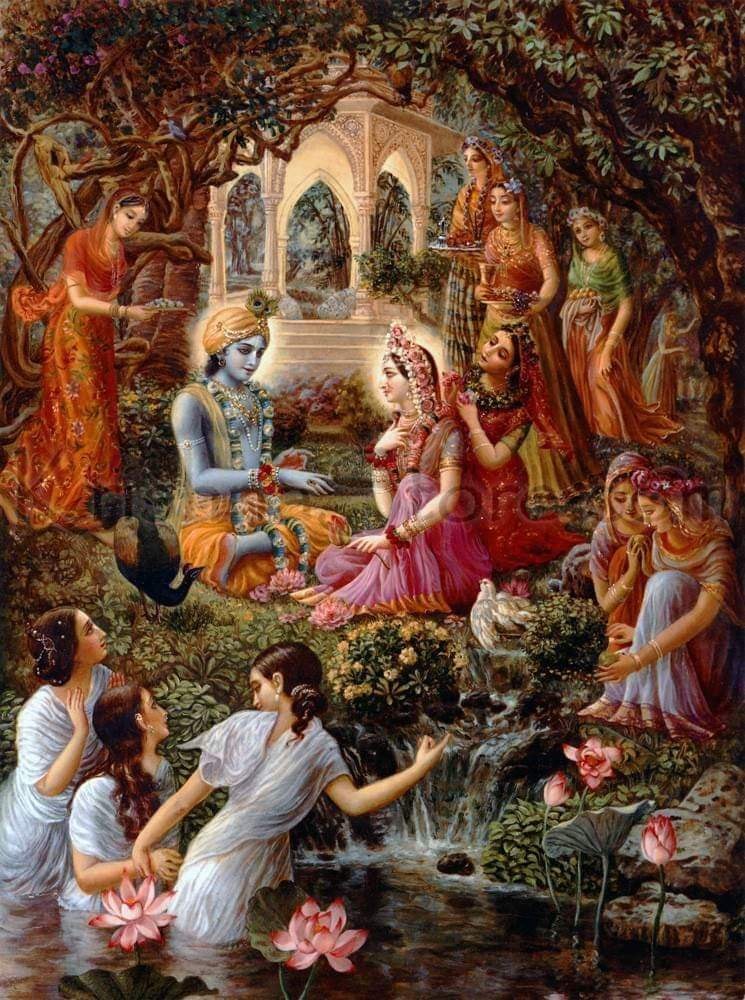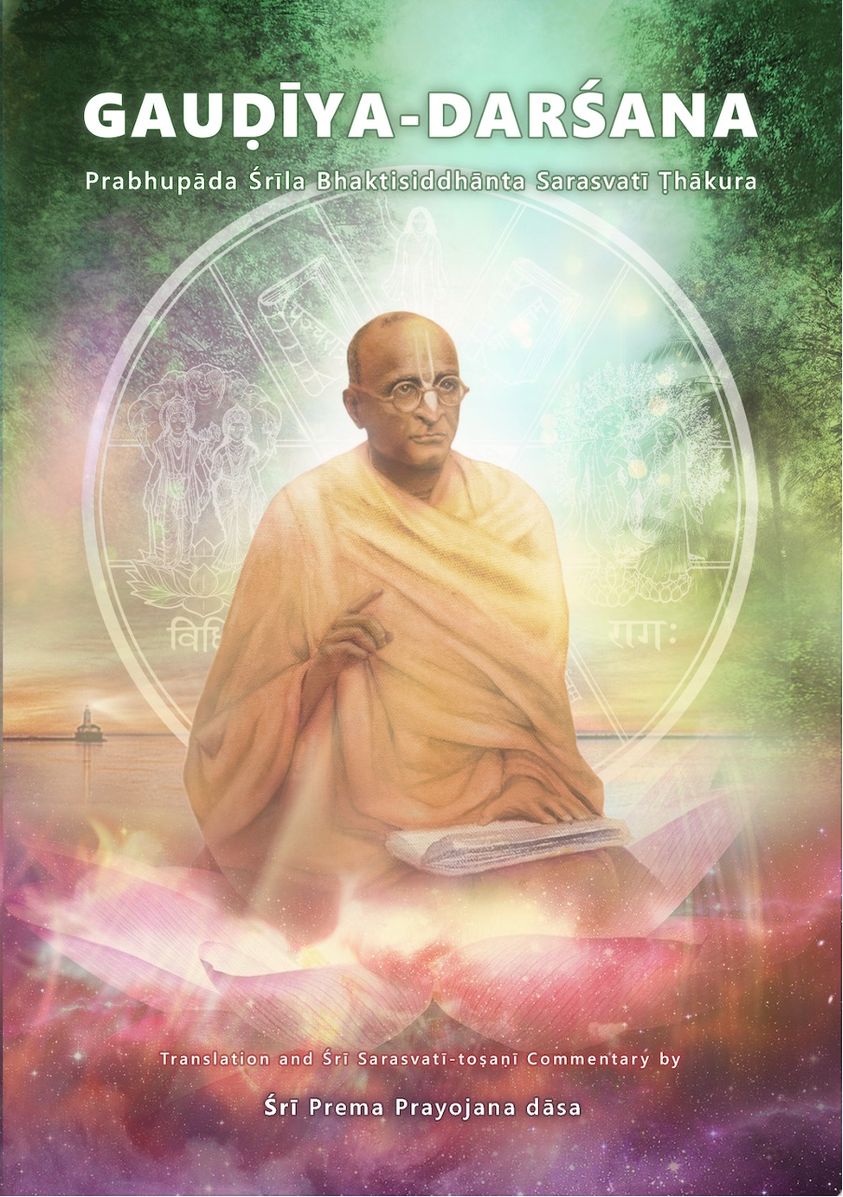Renunciation
From Srila Bhaktivedanta Narayana Maharajas Bhagavad Gita Chapter 5 Texts 22-23

Srila Bhaktivedanta Narayana Maharaja
Bhagavad Gita Chapter 5 Text 22
O Kaunteya, pleasures born of contact with the senses are certainly the cause of misery. Since they have a beginning and an end, a wise man does not become attached to them.
![34[1]](http://www.harekrishnasociety.com/wp-content/uploads/2012/04/341-150x150.jpg)
Srila Visvanatha Cakravarti Thakura, pained by Syamarani dasi
PURPORT BY SRILA VISVANATHA CAKRAVARTI THAKURA
A wise man does not become attached to sense enjoyment. For this reason, this sloka beginning with the words ye hi is spoken.
PURPORT BY SRILA BHAKTIVEDANTA NARAYANA GOSWAMI MAHARAJA
The happiness derived by the contact of the senses with sense objects is called samsparsa-moksha. Such happiness has a beginning and an end, for when the contact is broken, the happiness ceases. For this reason, the wise do not become attached to such sense enjoyment, which is transient and which only appears to be pleasant. It is only to maintain the body that they engage their senses in action with an attitude of detachment.
Bhagavad Gita Chapter 5 Text 23
Before giving up the body, he, who in this very life can tolerate the urges born of lust and anger, is a yogi, and is certainly happily situated.
![Visvanatha-Cakravarti-Thakura-for-March-26[1]](http://www.harekrishnasociety.com/wp-content/uploads/2012/04/Visvanatha-Cakravarti-Thakura-for-March-261-150x150.jpg)
Visvanatha Cakravarti Thakura
PURPORT BY SRILA VISVANATHA CAKRAVARTI THAKURA
Despite having fallen into the ocean of material existence, the persons described in this sloka are yogis and are happy. To explain this Sri Bhagavan is speaking this sloka beginning with saknoti.
PURPORT BY SRILA BHAKTIVEDANTA NARAYANA MAHARAJA
The intense desire or hankering to attain sense objects that are favourable for sense pleasure is referred to here as kama, or lobha. The deepest meaning of the word kama, which in this context indicates all types of desires, is the desire to gain pleasure by the mutual combination of man and woman. The mind.s excessive repulsion (envy) towards that which is unfavourable to sense-enjoyment is called krodha. Those who can tolerate the urges of kama and krodha until the time of death are known as yogis, and they are happy.

![lordkrishna[1]](../wp-content/uploads/2012/04/lordkrishna1-150x150.jpg)







